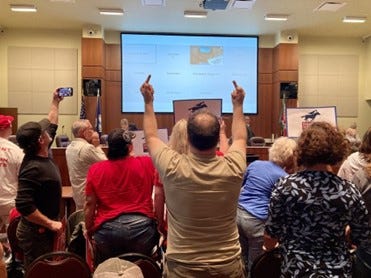In 2021, the campaign ship of Democratic gubernatorial candidate Terry McAuliffe ran aground, purportedly on the question of whether parents had the right to have a say in their children’s education. In the context of McAuliffe’s remarks, the reference was to random individual’s objections to particular school library books, but the condensed sound bite sunk the campaign.
On the surface it is difficult to deny parents the implied rights, but there is actually more than one way to skin this cat. The big difference is between what could be thought of as democratic rights as opposed to disruptive rights. I have nothing against disruptive rights. I have exercised them frequently myself. My only point here is to recognize the distinctions among rights.
Parents with the right to vote already have the right to choose school board members, and school boards have the power to oversee school management. Management includes curriculum and implicitly, the contents of school libraries. I would call these democratic rights.
On the other hand, packing and disrupting the school board’s public meetings, filing suit to remove duly-elected board members, and creating public protests over particular practices by particular school leaders or employees, all legal, we could call disruptive rights.
(Parents exercising their rights. ^^^ )
As with most rights, these can all be in conflict. Your right to remove a board member goes against my right to have somebody I voted for serve in office. Your move to force a duly-elected public official for whom I voted into a recall election forces my preferred candidate to win two elections, not just one. Disruptive rights may be legal, but they should be understood as anti-democratic.
None of the dissent against the Loudoun County Public Schools is illegitimate. It simply does not deserve a monopoly on the banner of “parents’ rights.” In the name of the rights of some persons, it abrogates the rights of others.
All bureaucratic, administrative systems make mistakes – sometimes big ones. To make these systems subject to the protests of random individuals, to tie them up with costly demands for “accountability,” are exercises of rights by some that impede the rights of others.
I try to vote as wisely as I am able and expect professional standards of performance from those for whom I vote. If high performance is not forthcoming, that is on me as much as them. I do not want to be dragged into battles with miscellaneous illiterates who want to ban the works of Toni Morrison from school libraries. That is my right.



Another way to put this is:
The election that elected such a Board was one that the whole electorate had the chance to vote in. As such it has more legitimacy than an effort of a much smaller group to disrupt a meeting of that elected board after it has been elected.
The disrupters may be parents with some rights over the education of their own children. They have no such rights over the education of other parents’ children. The disrupters may be parents but no one elected them to speak for all parents and those who disagree with them have no duty to outshout the disrupters.